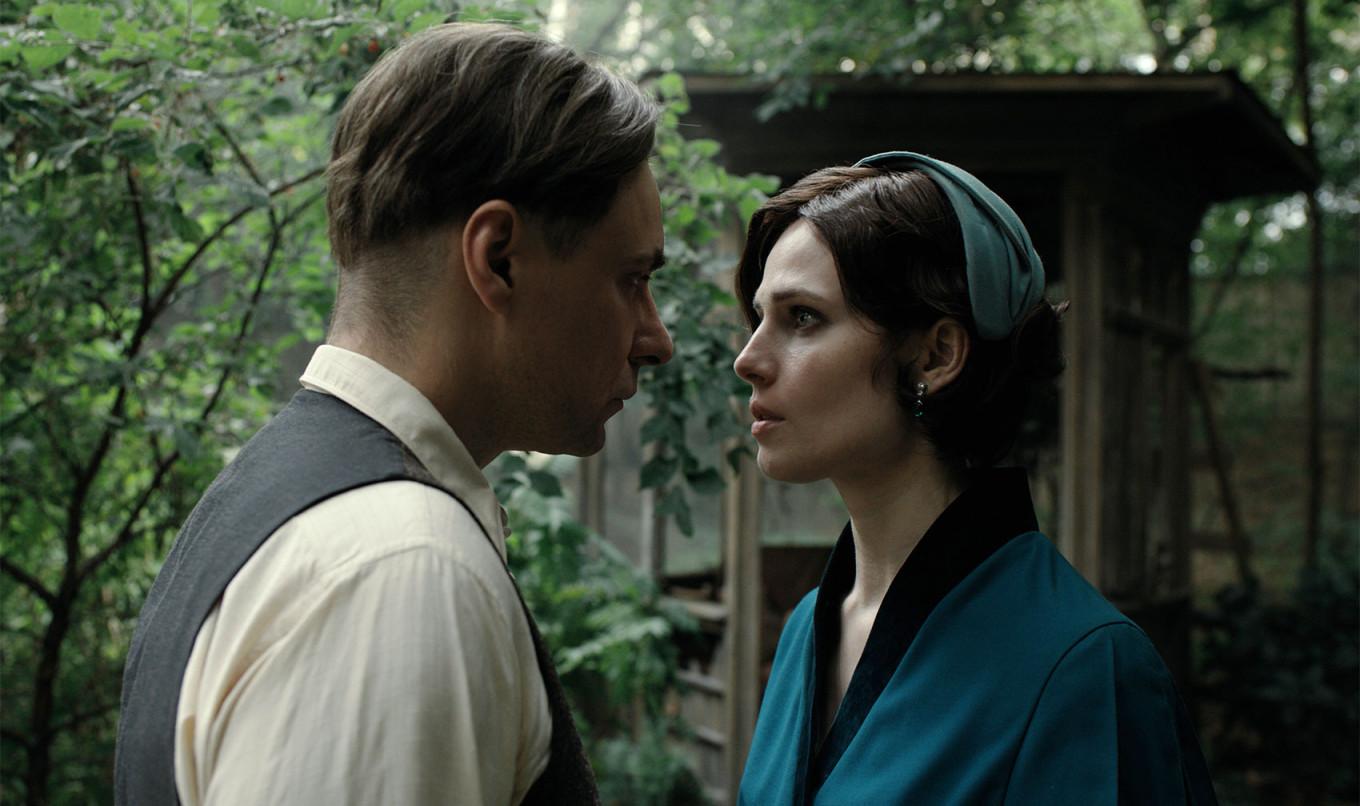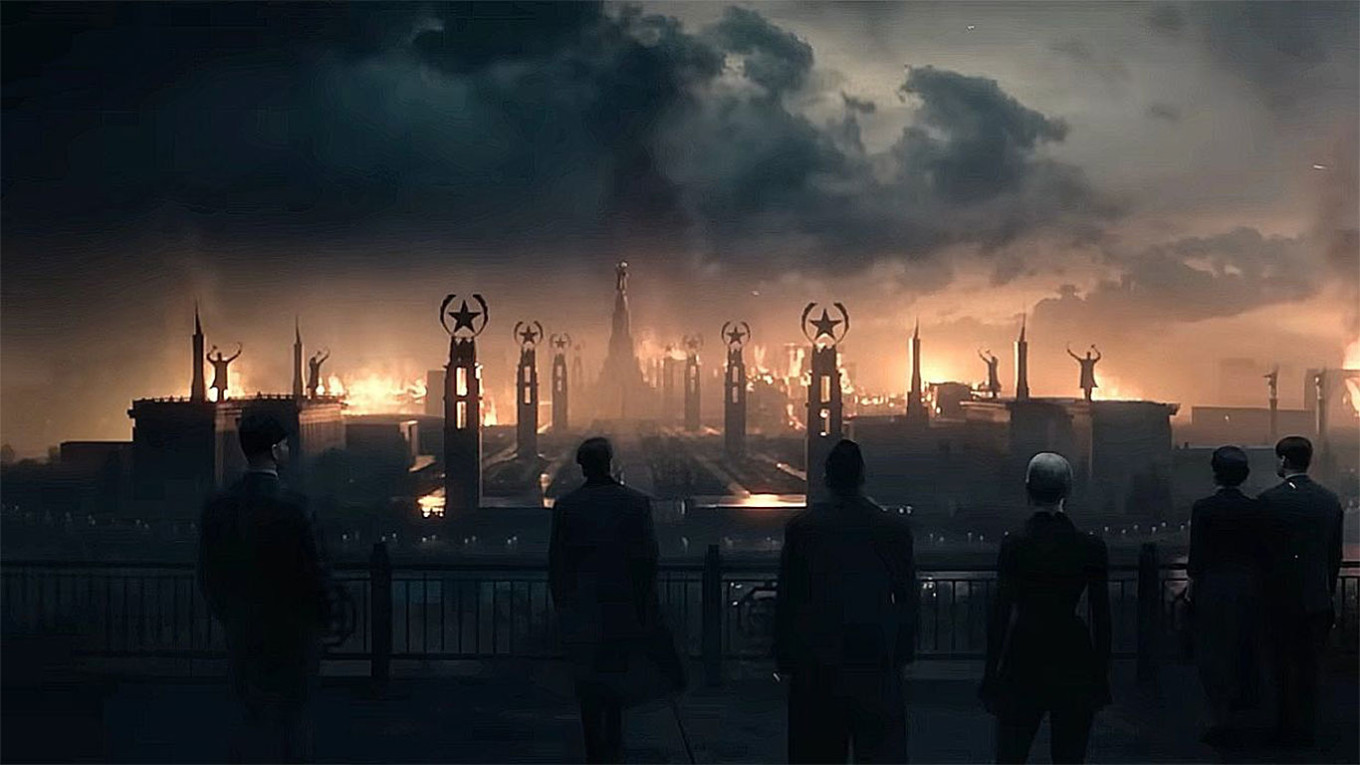“The Master and Margarita” was released in late January 2024 and quickly became one of the highest-grossing films in Russian history. The Moscow Times talked to the film’s director about his creative process and the backlash he faced from Russian state propagandists.
Andrei Muchnik: How did you first become involved in this project?
Michael Lockshin: My first movie, “Silver Skates,” was surprisingly successful despite the pandemic. It was the first Russian-language film to be picked up by Netflix. It was available in more than 50 countries and doing well. That news alone was enough for the producers to get interested.
The producers had the rights to the novel “Master and Margarita” for years and had previously worked on it with a different team, but that project fell apart at the script stage.
The producers were looking for a new take. In 2019 they approached me for a pitch. At first I said, “It’s one of my favorite books, but it’s impossible to make into a movie.” But I agreed to consider it.
A month or two went by, my co-writer Roman Kantor and I reread the book, did some research, consulted with scholars and came up with a concept that intertwined the book’s narrative with Bulgakov’s own story — the writer writing the novel.
We got the green light. In 2020 we wrote the script, and in 2021 we shot the movie. We had European and Russian actors, we shot in Russia and Croatia. For a production of this scale everything worked rather well. Universal Pictures came on board for distribution. We had just begun to edit when Russia invaded Ukraine.
AM: What happened with the project after the invasion?
ML: The movie went into a limbo for a year. Universal Pictures, like other foreign distributors in Russia, pulled out. I made political statements against the war and against the regime, as did many others at the time. I had already moved to Los Angeles in October 2021 and planned to edit the film there. So I had no reason to censor myself in terms of the new Russian laws about spreading “fake” information.
But that position became a problem for the movie’s producers, most of whom live in Russia. So there was a combination of Universal Pictures pulling out, the distribution not being clear, and my political stance as well as the themes of the movie, which were heavily anti-regime and anti-censorship. That was fine before, but all of a sudden they became very dangerous.
The producers did not understand whether they could finish the movie with me even if they had the budget because of my political statements. So the movie was “put on the shelf” for almost a year.
It was very tough emotionally. I wasn’t sure if the movie would ever be finished or if it would ever come out. I just didn’t know.
In 2023, for various reasons the producers realized they had to finish the movie with me, and my position was that I wouldn’t censor the movie in any way.
This was a brave move on the part of the producers. They went ahead and finished the movie and, miraculously, were able to release it. Up until one and a half months before the release we didn’t know if we’d be allowed to. But the fact that it was Bulgakov, the most beloved novel and a highly anticipated movie allowed the producers to kind of get around all the roadblocks and release it.

AM: Were you attacked personally?
ML: I didn’t expect it and it was quite frightening. As a filmmaker you don’t really expect to be personally attacked with threats and a criminal record for a movie that you made.
So, on one hand it was scary, but on the other hand, the attacks only started a few days after the movie was released and was already successful. It was because the movie was getting such good reviews from critics and audiences, and people talking about how relevant it was, and the political aspects of the movie. That was when the propagandists watched it and started the campaign.
It started with Telegram channels, but then it moved to the state TV with Vladimir Solovyov and the rest of them. Then it went to the State Duma. And then people started writing messages with death threats. It got really crazy and nerve-wracking.
But at the same time I was getting a huge amount of support and love from audiences. So there was a kind of counterbalance.
On yet another level I was seeing the irony of it all, because this is what the movie was about: a writer, who is censored, with critics going after him, and the state going after the writer for what he’s writing.
AM: Could you talk about the censorship element in the movie and how exactly it relates to Bulgakov’s personal story?
ML: First of all, the novel, “Master and Margarita,” is unfinished. So if you go back to previous drafts you will find that Bulgakov was much more explicit talking about censorship. As time went on he started to use what’s called “Aesopian language” in Russia to conceal what he was talking about. But it was still about artistic freedom and the relationship of an artist and the state and authoritarian censorship.
AM: But unlike in your film, in the novel the Master is not arrested.
ML: In the movie there’s a scene where Margarita is telling the Master her dream about him being in the Gulag. That’s straight from the book. Then there’s another scene in the book where the Master tells Bezdomny what he did before the psychiatric ward and he mentions that “the buttons were ripped off his coat,” which is code for being in the Lubyanka.
If you read a previous draft it’s actually quite explicit that the Master was taken to Lubyanka and held there for three months. In later drafts Bulgakov removed that, afraid that it would never be published.
Bulgakov himself was taken to Lubyanka and interrogated. He also burned his manuscript of “Master and Margarita” twice, afraid that the secret service would come to arrest him. He had multiple friends and colleagues who were jailed and disappeared. The “bad apartment” in the novel, where people would disappear, is a reference to the NKVD picking them up and taking them to jail.

AM: How did your vision of futuristic, constructivist Moscow come about?
ML: This also was inspired by Bulkakov. If you look at the Patriarch Ponds scene, the most iconic in the book, it has a tram, right? And anybody who lives in Moscow knows that there’s no tram in the Patriarch Ponds neighborhood. There never was one. But there were plans for this in the future.
And if you go back to Bulgakov’s early editions, he gave an exact date when this scene would happen: May 1, 1943 — 10 years into the future.
There’s a lot of science fiction in the early drafts. There’s a scene where zeppelins are fighting in the air in an ongoing war. And in one of the versions all of Moscow is burning in an all-out war. That what we did in the final scene of the movie. Some scholars think that Bulgakov predicted the coming war. There are different interpretations of it.
AM: What are your plans for the future?
ML: I want to continue making something that I believe is meaningful. That’s important for me. I’m not in the production right now, but I hope to start this year.
AM: Will ‘Master and Margarita’ be shown outside Russia?
ML: We don’t have any contracts signed, but I’m working on it, and I am hopeful it will happen.
… we have a small favor to ask.
As you may have heard, The Moscow Times, an independent news source for over 30 years, has been unjustly branded as a “foreign agent” by the Russian government. This blatant attempt to silence our voice is a direct assault on the integrity of journalism and the values we hold dear.
We, the journalists of The Moscow Times, refuse to be silenced. Our commitment to providing accurate and unbiased reporting on Russia remains unshaken. But we need your help to continue our critical mission.
It’s quick to set up, and you can be confident that you’re making a significant impact every month by supporting open, independent journalism. Thank you.





